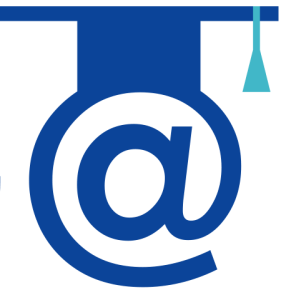Topic outline
-
Welcome to IMBRSea Compass!
This is a preparation tool to help you have a smoother start in September by providing you with academic, practical and other useful information about your upcoming degree.
It's a tool that was co-created by current students & teachers at Ghent university, though the modules taught in the first semester are universal and should therefore also be applicable for the other starting universities.
Everything here is completely voluntary and none of this is formally assessed, it is merely an option we'd like to offer you to help you have a good start.
We collated information here on the basic background knowledge and prerequisites for some of the fundamentals modules, where you can self-assess your knowledge using the online quizzes we created. If you feel like you are lacking some understanding in a certain area - don't worry - we've also put together lists with useful material and supporting resources to help you get an understanding of those concepts. Having a good grasp on those concepts will mean that you have more than enough background knowledge to follow the courses in September. However, they are no guarantee for passing those modules and are simply here to support you before starting.
We also have some other sections that provide resources for your mental wellbeing, practical and logistical tools and information, general resources for academic skills and a great collection of cool inspirational material all related to marine sciences. They are not officially endorsed by IMBRSea, just informal recommendations from some of the current students that we thought might be interesting for you.
We really hope that this will be useful for you and that the information provided here will help you have a great start for your journey over the next 2 years!
This is the first version of this tool, so we are still updating and changing this also according to your feedback.
-
This is one of the fundamentals modules that you will all take in the first semester and will introduce you to the statistical tools you can use as marine scientists (IMBRSea Course description).
-
This is a voluntary quiz to help you assess your basic skills in statistics. Having a good understanding of the key concepts tested here will really help you have a smoother start in September. Don't worry if some of these things are new to you or you feel like you might have forgotten them - that's why we made this quiz
Really the best way to use it is to see it as an online tool to help you find out which topics you might want to refresh a little before starting the programme. We also put together a list of helpful online courses and resources at the end of the quiz to help you with that and to ensure you will have a good start!
-
Course Overview
The following PDF is a brief overview of the course including which concepts you should be familiar with beforehand and the topics that will be covered during the course. Think of it like a roadmap to give you a quick overview of the course.
-
-
R Introduction
The statistical programme that we use is "R" or "RStudio". It's a free, open source software that is increasingly being used for data analysis and visualizations in biology. If you haven't used it or even heard of it before - don't worry! There are lots of really good, free resources available to help you get into R and there is a big active online community ready to answer questions and help you out. We've compiled a little introduction here for you that shows you some of the basic concepts and even a little exercise that you can work through if you want to help you get used to the software and perform simple tasks. R is really amazing and can do a lot of great things and hopefully after taking this course you'll be just as excited as we are about it!
Getting Started
If you haven't worked with R before, then the following PDF gives you a good overview and guidance. It was developed for a full semester-long course about R, so it is quite extensive. Don't worry if R is completely new for you - we don't expect you to know everything on here beforehand or for you to work through the whole course provided in the PDF. For starting the program it would simply be good to have a basic understanding of its functions and be a little familiar with the software interface, this PDF gives you really nice step-by-step instructions for that.
-
-
If you already feel comfortable with the basic concepts of R, here is a short summary of using data frames and working with packages.
-
-
If you want to try out your practical skills, here is a more advanced example exercise and dataset you can try working through. If you haven't worked with R before this might look a bit intimidating, but don't worry - just try focusing on the main concepts first and familiarise yourself with the basic software interface as this is a more advanced exercise.
-
-
-
-
Other R Material
In case you just can't get enough of R, here's another "R for Beginners" introduction book and a few useful one-page summaries of some commonly used commands in R.
-
-
Overall statistics summary book & guide to commonly used tests - you don't have to work through this of course, just in case you are interested & prefer having a full written version
-
-
-
